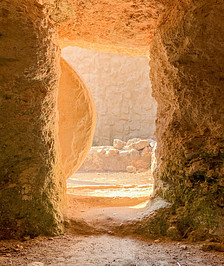The two major holidays of Christianity are Easter (Resurrection of Christ) and Christmas (Birth of Christ), but Easter is a holiday over the holidays. Easter in Orthodoxy, however, has a special place in the church calendar. It is a “holiday over holidays.” It is celebrated as a moving holiday between April 4 and May 8, while Catholics and Protestants celebrate it between March 22 and April 25. All Orthodox celebrate Easter according to the old Julian calendar, while Christmas is celebrated in the Orthodox Church according to both calendars (Julian and Gregorian). In the Western churches (Catholics and Protestants), only the Gregorian, new (reformed) calendar is in force. By the decision of the First Ecumenical Councils, Easter began to be celebrated after the spring equinox, on the first week after the full moon. Due to the differences in the calendars in Western and Eastern Christianity, this date may differ by one, four, or five weeks and may coincide also.
Other Major Holidays of Christianity

In addition to Easter, twelve other Great Feasts are celebrated, in the order in which they are stated in the church calendar, starting from September. These are the Birth of the Most Holy Mother of God (Little Lady), Ascension of the Holy Cross (Day of the Cross), Introduction of the Most Holy Mother of God (Temple), Christmas, Epiphany (Baptism of Christ), Meeting (Introduction of the Lord into the Temple), Annunciation, Flowers ), Savior’s Day (Ascension of the Lord), Pentecost (Descent of the Holy Spirit), Transfiguration of the Lord and the Assumption of the Blessed Virgin Mary (Great Lady). Three of these twelve holidays are related to Easter, so they are “movable” (Flowers, Savior’s Day, and Pentecost), while the rest are “immovable,” i.e., they have a fixed date in the calendar. As can be seen from the previous list, seven holidays are connected with Christ, and four with the Mother of God.
What Are Holidays Actually?
Holidays are usually days off. Countries have different days; municipalities and individual church communities can also celebrate formal holidays or informal holidays, such as Valentine’s Day. These holidays are no days off. Holidays can also be personal: birthdays and anniversaries.
We all celebrate and look forward to the holidays, but we know little about them. Holidays have been filling people’s lives for thousands of years and, at the same time, relieving them; in this way, they make life meaningful and, at the same time, make it easier and harmonize. Even today, we know people who, intentionally or unintentionally, cultivate a special attitude toward the holiday. Once upon a time, every celebration contained much more; we could talk at least about the celebration’s mythical, symbolic, and spiritual upgrade.
Every person celebrates the holidays for a special reason. Nowadays, we mostly celebrate the holidays for joy, escape from worries, and naked pleasures. In the past, however, the holidays were celebrated with a deeper meaning, e.g., suspension of work on certain days of the month due to concern for a good harvest, etc.